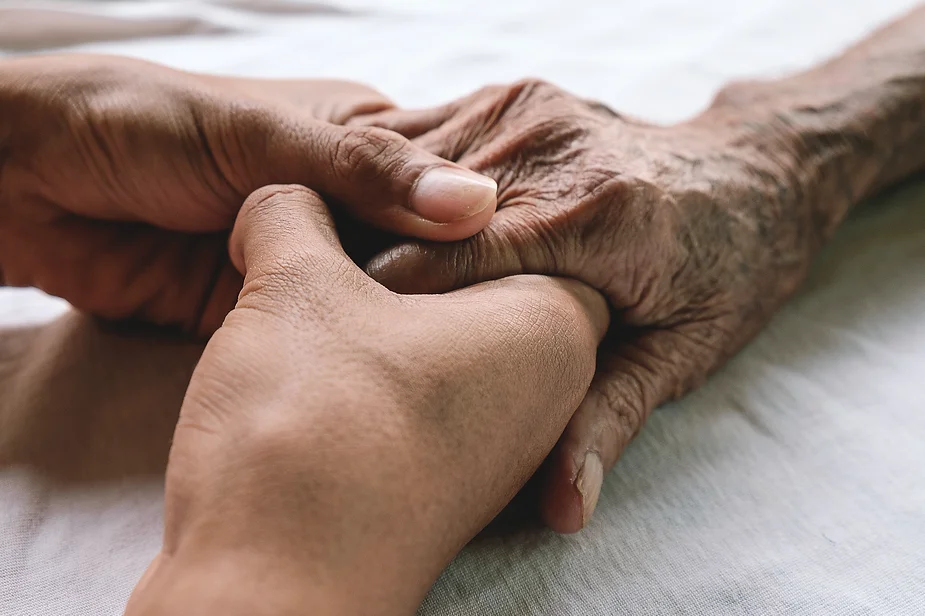Updated: Mar 7, 2022
Here in the UK, we’re a nation of suppressed, apologetic, tea-glugging money mis-managers. More than 77% of us feel stressed about our financial fiascos and 20% of us are too scared to even check our bank balances[1]. It’s not an ideal environment for frank conversations about financial planning. Too often, the money conversations we should be having get shoved under our unhygienic carpets and forgotten about forevermore. But you might be amazed to know, that some of the most important aspects can be fixed in just a couple of minutes, with an email or call.

To celebrate June, the official LGBTQIA+ month, I’d love to throw on some rainbow glitter and parade through the streets with a massive sign. But until we can do that safely, here’s the next best thing: A 1000-word article about pensions. If you’d like to make sure that your partner gets financial support after you’ve bitten the dust (sorry), here’s what you need to do:
Pensions
You’ll have up to three pensions:
- State pension If you’ve been working in the UK for at least twelve years, you’ll probably be entitled to a state pension, if you’re still living here when you’re 68. The amount of money you’ll get depends on how many years you’ve worked. For your partner to be entitled to any of your pension money, you’ll need to put a ring on it. Only Civil Partners and married couples can claim – and they have to be in a relationship right up until the end, otherwise it doesn’t count. 💍
- Workplace pension When you work, about 3% of your salary will go into a pension pot, your employer will add about 5% and the government will add a bit more. Nice, right? You can usually start taking this out once you’re 55 years old. Making sure that your partner inherits your pension should be pretty simple. You can call up or email your pension service and let them know your partner’s details. You could also add this in your Will. Otherwise, the money would automatically go to your spouse or closest family. 📜🖊
- Private Pension You can set up a private pension yourself, such as a SIPP (Self-invested Personal Pension), which is what a lot of self-employed people tend to do. SIPPs can be a good way of getting free money. You can read more here. Just like a workplace pension, you can contact your pension provider with your partner’s details. It should be quite straightforward to ensure that they get the money if you die first. Most SIPPs have snazzy apps, so it should be a user-friendly experience. 📱

Individual Saving Account (ISA)
ISAs are everybody’s favourite tax-efficient way of growing money here in the UK. There are lots of different types of ISAs for investments and savings. They’re also offered by lots of different places, from high-street banks to robo-advisor apps.
To make sure that your partner gets the money, you can either contact the ISA provider (normally you can do this online in a couple of clicks) or mention it in your Will.
📱 📜🖊

Property
There are two ways that you can own a property together.
- Joint tenants: This means that when one person dies, the property will automatically pass to the other.
- Tenants in common: The partners own a proportion of the property each (for example 40% and 60%). When one partner dies, their proportion is inherited by the person named in their Will.
The big but…
To avoid paying inheritance tax, you’ll need to make your love legal. Getting married or getting a civil partnership is the only way your partner can continue to live in the property without forking out massive inheritance bills.
💍
So… if you were looking to pop the question and want to test your partner’s reaction… you could try having a sexy little chat about property inheritance law. You are welcome.

What if you become … a little bit nuts?
We all know that before death, older people can start to lose some cognitive functioning (yep, Happy June Everyone!). So, what if this unfortunately happens to you? Who would you trust to make the best decisions for your well being? Who would you trust to manage your money on your behalf?
If you’re not married or in a civil partnership, that person would be your closest family member. Most likely, it would be one of your children or siblings. They’ll be in charge of making decisions for you. If the person you trust most in the world is your partner, and you’d want them to take charge, there are some things you need to do while you’re in good health.
- Yep, you guessed it. You could whoosh your beloved up the aisle. Getting married or getting a civil partnership is, for most people, the easiest way to ensure that you’ll be legally recognised as the next of kin. 💍
- You can register a “Lasting Power of Attorney” document. This is a government form which you can do partly online if you like, but you’ll still need to post some things too. You can access the form or find out more here. To register your Lasting Power of Attorney, it costs £82. If you earn less than £12,000 a year, it may be a little cheaper. You’ll also need to get somebody to witness the document – they’ll watch you sign and then sign themselves that it was really you. As well as officially naming your partner, you can also state what you would like to happen in the future, if you can’t make decisions yourself. You can give instructions (which are like orders) or preferences to help guide your partner in their choices. 📜🖊

And there we have it! These are just some of the ways that you can help to ensure that your partner and you are financially stable for the long-term. Planning for sad events is not nice to think about. But if you’re sure that you’re with THE ONE, it can be well worth considering for better peace of mind.
💰🤑💲🌈🏳🌈




